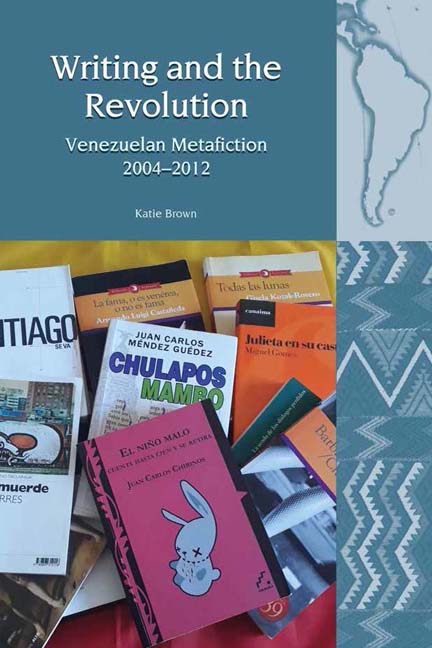6 - Fiction and Reality
Summary
Fiction drawing attention to itself as a fabrication is one of the defining characteristics of metafiction (Cazzato, 1995; Currie, 1995; Waugh, 1995). Through both style and content, the novels discussed in this chapter foreground their own fictionality. Drawing readers’ attention to the text as a creation allows authors to assert that writing is an activity which requires special skill in contrast to the Bolivarian vision for a nation of writers, exemplified by Francisco Sesto's comments that ‘todos pueden manejar bien la palabra’ [everyone can use words well] (Wisotzki, 2006, 38). More than just a reaction against the delegitimisation of the author as an individual talent, however, fiction that highlights its own constructed nature also challenges the official narratives of the Bolivarian Revolution. With the breakdown of grand narratives throughout the twentieth century, the possibility of a mimetic literature has also been questioned across global literary trends, leading to literature that examines perceptions of reality and how they are formed. In the Latin American case, for example, Philip Swanson (1995, 3) observes in the development of the ‘new novel’ since the mid-1900s how:
Regional issues give way to a universal epistemological or ontological scepticism and the ordered narrative form which reflected an ordered world view gives way to a fragmented, distorted or fantastic narrative form which reflects a perception of a contradictory, ambiguous or even chaotic reality.
Fiction that highlights its own constructed nature encourages readers to question official narratives. By highlighting the ways in which a reality is created within fiction, the novels examined in this chapter reveal how narrative techniques can be and are used by the Bolivarian government through the media, speeches and official history to create a perception of reality which allows them to maintain their control. In this way, the metafictional trend in these novels – above all, the process of creating reality through oral, written and audio-visual narrative as a key theme in El niño malo cuenta hasta cien y se retira (Chirinos, 2010), Bajo las hojas (Centeno, 2010) and Rating(Barrera Tyszka, 2011) – challenges the Bolivarian Revolution and its ideals.
- Type
- Chapter
- Information
- Writing and the RevolutionVenezuelan Metafiction 2004-2012, pp. 148 - 170Publisher: Liverpool University PressPrint publication year: 2019

